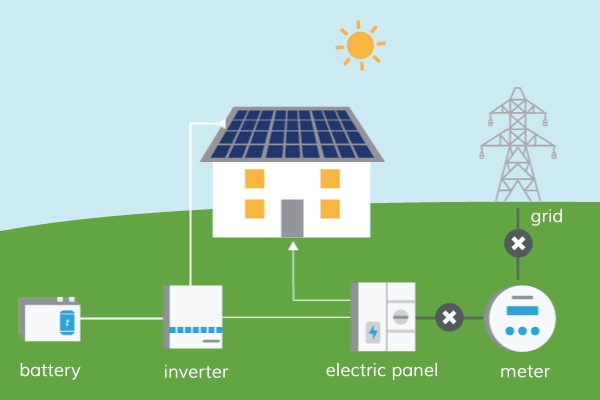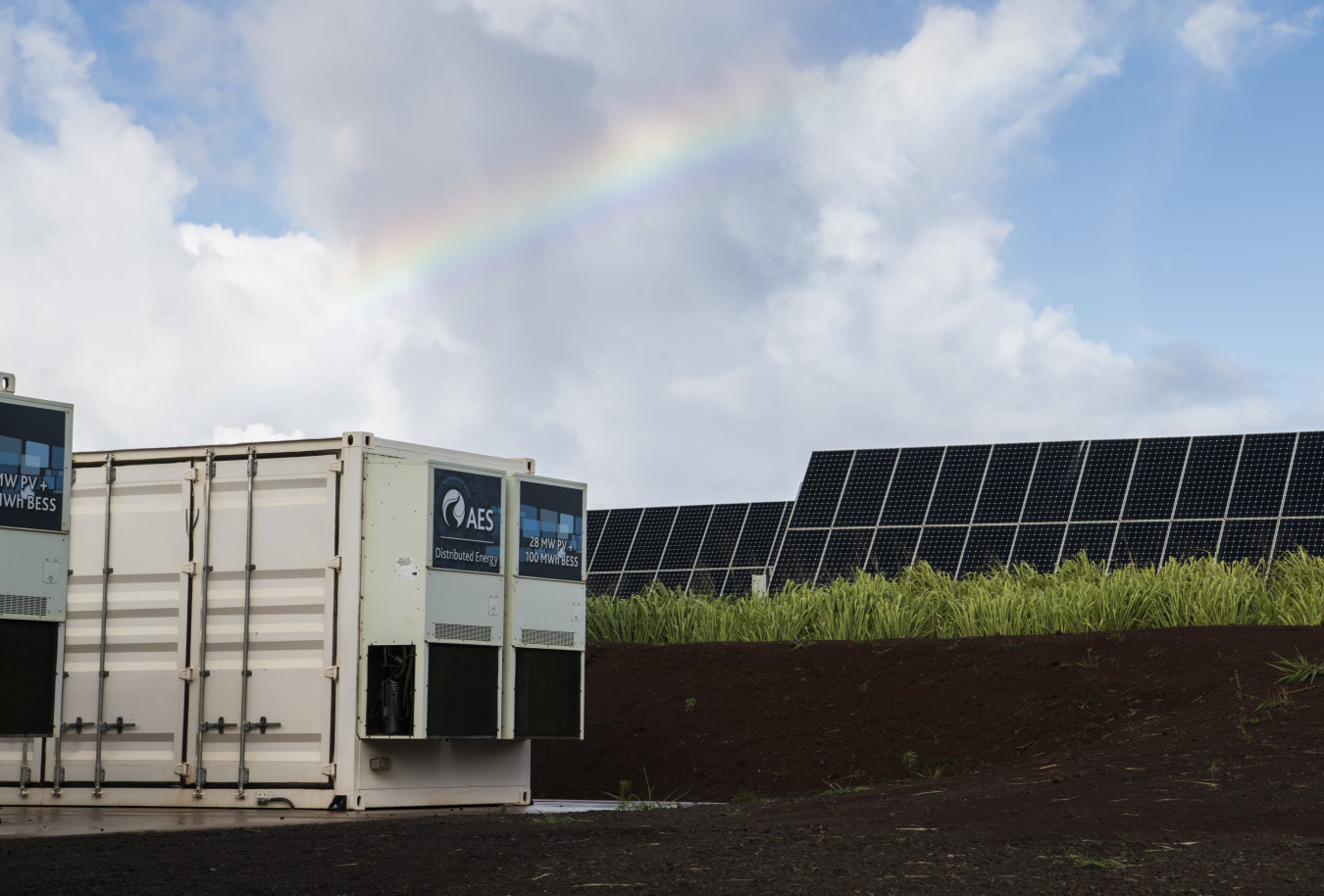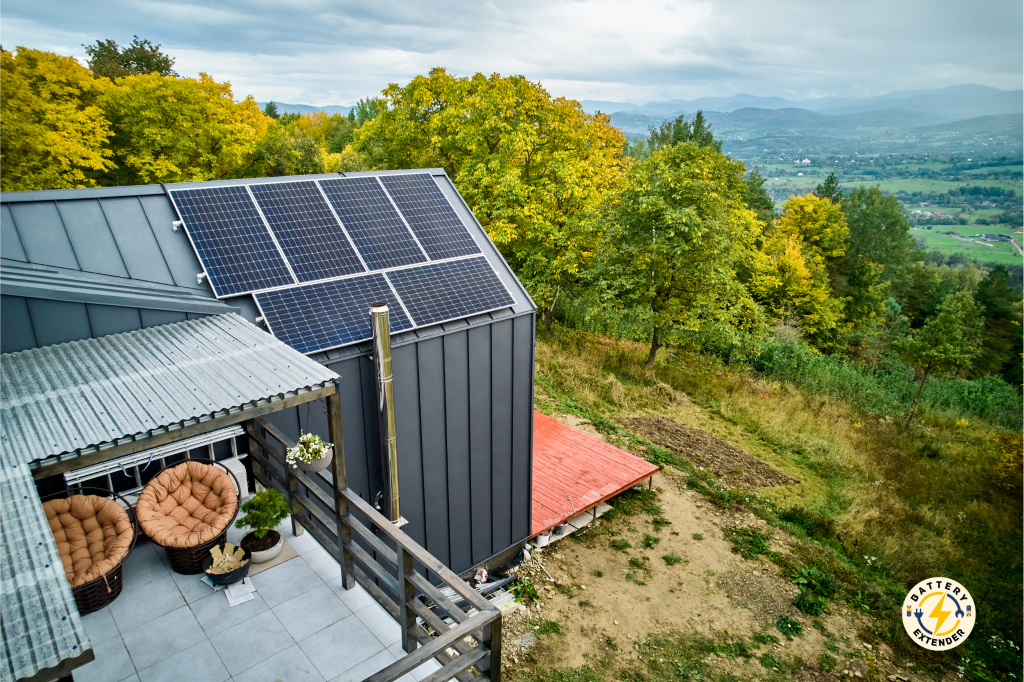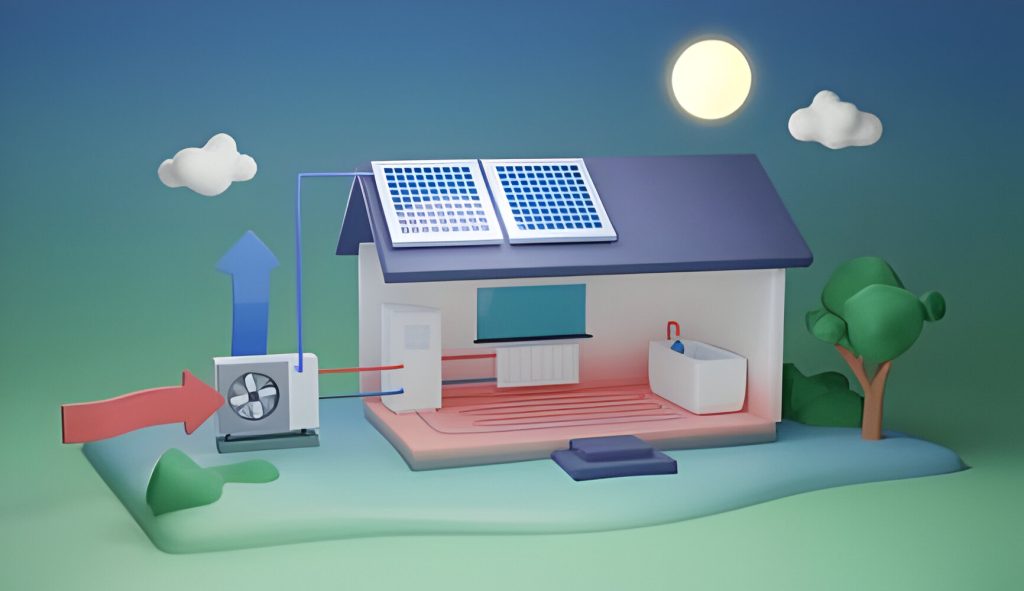Solar panels with battery storage offer a reliable way to harness and store solar energy. This system ensures power availability even when the sun isn’t shining.
Solar panels convert sunlight into electricity, helping reduce energy bills and environmental impact. Integrating battery storage enhances this system by storing excess energy for later use. This stored energy can power homes during nighttime or cloudy days, ensuring a constant energy supply.
Battery storage also provides a backup during power outages, increasing energy independence. Modern battery systems are efficient and require minimal maintenance, making them a practical addition to solar installations. Embracing solar panels with battery storage is a wise investment for a sustainable and resilient future.
Introduction To Solar Energy Storage
Solar energy storage is changing the way we use power. Solar panels collect energy from the sun. Batteries are valuable tools for storing energy for later use. It ensures you have power even when the sun is not shining. This technology is a game-changer for many homes and businesses.
The Rise Of Renewable Energy
Solar energy is one of the renewable energy sources that is growing in popularity. People are moving away from fossil fuels. Fossil fuels are bad for the environment. Solar power is clean and sustainable. It reduces our carbon footprint and helps the planet.
Government incentives are also encouraging the switch to solar. These incentives make solar panels more affordable. Many people are now able to install solar panels on their roofs. This shift is leading to a greener and cleaner future.
Solar Panels And Batteries: A Match Made In Heaven
Solar panels and batteries work perfectly together. Solar panels generate power during the day. Batteries store this power for use at night or on cloudy days. This combination ensures a constant energy supply.
Here are some benefits of using solar panels with battery storage:
- Energy Independence: You are less reliant on the grid.
- Savings on costs: Lower or even get rid of your power expenses.
- Backup Power: Have power during outages.
More people are choosing solar panels with battery storage. It provides an enduring and sustainable energy option. It is both eco-friendly and cost-effective.

Credit: www.myrec.coop
How Solar Batteries Work
Solar panels are a great way to generate electricity from the sun. What occurs, though, after the sun sets? That’s where solar batteries come into play. Solar batteries store the energy generated by solar panels during the day, so you can use it when the sun isn’t shining.
The Basics Of Solar Energy Storage
Solar energy storage is a simple but powerful concept. Solar panels use light from the sun to generate power during the day. You may use this power immediately or store it in batteries for later use. Stored energy can power your home at night or during a power outage. This makes your energy supply more reliable.
Solar batteries have three main parts:
- Battery cells: Store electricity
- Inverter: Converts stored energy into usable electricity
- Battery Management System (BMS): Keeps everything working smoothly
Types Of Solar Batteries
Solar batteries come in a variety of forms, each with unique benefits. Here are the most common types:
| Type of Battery | Advantages | Disadvantages |
|---|---|---|
| Lithium-Ion | High efficiency, long lifespan | Higher cost |
| Lead-Acid | Lower cost, proven technology | Shorter lifespan, lower efficiency |
| Saltwater | Eco-friendly, safe | Less efficient |
Lithium-ion batteries are the most popular. They offer high efficiency and a long lifespan. Although lead-acid batteries are less expensive, their lifespan and efficiency are reduced. Saltwater batteries are eco-friendly and safe but less efficient than other types.
Benefits Of Combining Solar Panels With Batteries
Combining solar panels with battery storage offers numerous benefits. This integration can transform how you use energy at home. Solar panels harness sunlight, while batteries store this energy for later use. Together, they provide a reliable and efficient energy solution.
Energy Independence
Energy independence is a significant benefit of solar panels with batteries. It is possible to produce and store your electricity. This setup reduces reliance on the grid.
During a power outage, stored energy keeps your home running. You have consistent power, even during grid failures. This setup is ideal for remote areas with unstable electricity.
Reduced Electricity Bills
Combining solar panels with batteries significantly reduces electricity bills. Solar panels generate free electricity from sunlight. Extra energy is stored in batteries for later use.
During peak hours, use stored energy instead of expensive grid power. This strategy lowers your monthly electricity costs. Over time, savings can be substantial.
Environmental Impact
Lowering your carbon footprint is another critical benefit. Solar panels produce clean, renewable energy. Batteries store this clean energy for later use.
This reduces the need for fossil fuels. Using less fossil fuel decreases greenhouse gas emissions. Your home becomes more eco-friendly.
| Benefit | Description |
|---|---|
| Energy Independence | Generate and store your electricity |
| Reduced Electricity Bills | Lower monthly costs by using stored energy |
| Environmental Impact | Reduce carbon footprint and fossil fuel use |
In summary, combining solar panels with batteries offers multiple benefits. You gain energy independence, reduce bills, and help the environment. This setup is a smart choice for a sustainable future.
Choosing The Right Solar Battery
Choosing the correct solar battery is crucial for the efficiency of your solar panel system. A well-selected battery ensures you store the energy generated effectively and use it when needed. This guide will help you understand the critical factors in selecting the correct solar battery.
Battery Capacity And Power
How much energy it can store depends on the battery’s capacity. Measured in kilowatt-hours (kWh), a higher capacity means more stored energy. This is important for running more devices or appliances.
Power output refers to how much energy the battery can deliver at once. When measured in kilowatts (kW), higher power output is needed to run multiple devices simultaneously. Balance both capacity and power for optimal performance.
Depth Of Discharge And Efficiency
The depth of discharge (DoD) indicates the battery percentage that can be used. A higher DoD means you can use more of the battery’s capacity. For example, a 90% DoD on a 10 kWh battery means you can use 9 kWh.
Efficiency measures how much energy is lost during the storage process. A higher efficiency means less energy loss. For example, a 95% efficient battery loses only 5% of stored energy. Choose a battery with a high DoD and efficiency for better performance.
Battery Lifespan
The lifespan of a battery is measured in charge cycles. One cycle is a full charge and discharge. A battery with 5,000 cycles can last for many years. Lifespan also depends on usage and maintenance.
Below is a table to summarize these key factors:
| Factor | Description |
|---|---|
| Battery Capacity | Amount of energy stored (kWh) |
| Power Output | Energy delivered at once (kW) |
| Depth of Discharge | Usable percentage of battery |
| Efficiency | Energy loss during storage |
| Battery Lifespan | Number of charge cycles |
In summary, balance capacity, power, DoD, efficiency, and lifespan to select the right battery. Your solar panel system will be efficient and reliable with the right choice.
Installation And Maintenance Tips
Solar panels with battery storage are a significant investment. They can protect the environment and save you money. However, proper installation and maintenance are key to getting the most out of your system. This section will guide you through some helpful tips.
Professional Vs. Diy Installation
Choosing between professional and DIY installation can be challenging. Each option has its pros and cons. Let’s break it down:
| Professional Installation | DIY Installation |
|---|---|
|
|
Both options have their benefits. Pick the one that best addresses your needs.
Routine Maintenance For Longevity
Routine maintenance is essential for keeping your solar panels and battery storage in shape. Here are some tips:
- Regular Cleaning: Dust and debris can block sunlight. Clean your panels every few months.
- Inspect Connections: Check all electrical connections. Verify that no cables are loose.
- Monitor Performance: Use a monitoring system. This helps you track the energy production.
- Battery Care: Maintain your battery. Follow the manufacturer’s guidelines.
Following these tips will help you get the most out of your solar panels with battery storage. Your system will function better and endure longer.

Credit: www.energy.gov
Economics Of Solar Batteries
Solar panels with battery storage are a game-changer. They allow homes and businesses to store solar energy. When the sun isn’t shining, you may still use this energy. Understanding the economics of solar batteries is crucial for making an informed decision.
Cost Analysis
Initial costs for solar batteries can be high. Prices range from $5,000 to $7,000 per battery. This depends on the battery’s size and brand. Installation costs add another $1,000 to $3,000. This makes the total initial investment significant.
Maintenance costs are generally low. Most batteries come with a 10-year warranty. This covers most issues that might arise. Energy savings also help offset the initial cost over time. The more you save on energy bills, the quicker you recover your investment.
Incentives And Rebates
Government incentives can make solar batteries more affordable. Many countries offer tax credits. These can cover up to 30% of the installation cost. Local rebates may also be available. These can vary widely by region.
Here is a table showing some common incentives:
| Country | Incentive | Coverage |
|---|---|---|
| USA | Federal Tax Credit | 30% |
| Germany | KfW Loans | Low-interest |
| Australia | State Rebates | Varies by state |
Return On Investment
Return on Investment (ROI) is a crucial factor. ROI measures how quickly you recoup your initial investment. For solar batteries, this usually takes 5 to 10 years. Energy savings play a significant role in this calculation.
Here are some ways to improve ROI:
- Choose energy-efficient appliances.
- Monitor your energy use regularly.
- Take advantage of peak energy rates.
Long-term savings can be substantial. Over 20 years, you could save thousands of dollars. This makes solar batteries an intelligent financial decision for many.
Technological Advances In Solar Storage
Solar panels with battery storage have revolutionized energy consumption. As technology advances, these systems become more efficient and accessible. This section explores the latest innovations in battery technology and the future of solar storage systems.
Innovations In Battery Technology
Recent advancements in battery technology have significantly improved solar energy storage. Lithium-ion batteries are now more efficient and cost-effective. These batteries are more energy-efficient and have a longer lifespan.
Another breakthrough is solid-state batteries. They have a greater energy density and are safer. They are, therefore, able to store more energy in smaller areas.
| Battery Type | Advantages | Disadvantages |
|---|---|---|
| Lithium-ion |
|
|
| Solid-state |
|
|
The Future Of Solar Storage Systems
The future of solar storage systems looks promising with continuous innovation. Intelligent energy management systems are being developed to optimize energy use. These systems can predict energy needs and adjust storage accordingly.
Grid-tied systems are also evolving. They allow homes to draw energy from the grid when needed and sell excess power back. This makes solar storage systems more versatile and cost-effective.
Renewable energy integration is another exciting development. Future systems will integrate solar with wind and hydro energy. This will create a more stable and reliable energy supply.
In conclusion, technological advances in solar storage are making using renewable energy easier and more efficient. As battery technology improves, solar storage systems will become even more accessible and beneficial.

Real-life Applications And Case Studies
Solar panels with battery storage are transforming energy use across the world. They offer reliable, sustainable, and cost-effective energy solutions. Let’s explore some real-life applications and case studies showcasing their impact.
Residential Success Stories
Many homeowners are turning to solar panels with battery storage. They want to reduce their electricity bills and carbon footprint. Here are a few inspiring stories:
- Smith Family in California: The Smith family installed a 5 kW solar system with a 10 kWh battery. They now save $200 each month on electricity bills.
- Johnson Household in Texas: The Johnsons faced frequent power outages. They added a battery to their existing solar setup. Now, they have a reliable power supply even during grid failures.
- Martinez Residence in Florida: The Martinez family built a new home with solar panels and a battery storage system. Their house is now almost entirely off-grid.
Commercial And Industrial Use Cases
Businesses and industries benefit significantly from solar panels with battery storage. They can reduce operational costs and ensure an uninterrupted power supply. Here are some notable examples:
| Business | Location | System Size | Benefits |
|---|---|---|---|
| Green Manufacturing Co. | New York | 100 kW | Reduced energy costs by 40%. Improved sustainability credentials. |
| Blue Hotel Chain | Nevada | 200 kW | Energy independence. Reliable backup power during outages. |
| Urban Data Centers | Washington | 500 kW | Ensured 24/7 operations. Lowered carbon footprint. |
These case studies highlight the practical benefits of solar panels with battery storage. They show how both homes and businesses can achieve energy efficiency and reliability.
Overcoming Challenges And Limitations
Solar panels with battery storage offer many benefits. Yet, some challenges and limitations need addressing. Some common concerns include efficiency, cost, and reliability. This section will explore how to overcome these obstacles.
Addressing Common Concerns
People often worry about the initial cost of solar panels. While the upfront cost is high, the long-term savings are significant. Many governments offer incentives that help reduce costs.
Another concern is the reliability of solar power. Solar energy depends on weather conditions. But battery storage ensures power even on cloudy days. This makes solar power more reliable.
Space can also be a limitation. Not all homes have large roofs. In such cases, ground-mounted panels are an option. They can be placed in the yard, maximizing sun exposure.
Strategies For Efficiency Improvements
Improving efficiency is crucial for solar panels. One way is to use high-efficiency panels. These panels convert more sunlight into electricity. This implies that a given quantity of sunshine may produce more power.
Another strategy is to maintain the panels well. Clean panels work better. Dust and debris can block sunlight. Regular cleaning ensures maximum efficiency.
Using smart inverters also boosts efficiency. Smart inverters optimize the power from solar panels. They adjust to changes in sunlight, ensuring steady power output.
| Challenge | Solution |
|---|---|
| High Initial Cost | Government Incentives |
| Reliability | Battery Storage |
| Space Limitations | Ground-Mounted Panels |
- Use high-efficiency panels to get more power.
- Maintain and clean panels regularly.
- Install smart inverters for steady power output.

Credit: www.solarwa.org
Preparing For A Solar-powered Future
Embracing solar energy is not just a trend; it’s a necessity. Solar panels with battery storage are the way forward. They offer sustainable energy solutions for our homes and businesses. By investing in solar technology, you are preparing for a future that is cleaner and more efficient.
Integrating With The Grid
Solar panels with battery storage can integrate with the grid. This integration allows for seamless energy management. Excess energy can be stored for later use. You become less reliant on the grid as a result.
When the sun isn’t shining, you can still have power. The battery storage system kicks in. This ensures that you have a reliable energy source at all times. The grid acts as a backup.
Here are some key benefits of integrating with the grid:
- Reduced energy bills
- Increased energy independence
- Enhanced grid stability
Community And Policy Support
Support from the community and policies is crucial. Governments offer incentives and rebates for solar panel installations. These incentives increase access to solar energy.
Communities are also coming together. They support solar energy projects. Local governments are setting renewable energy targets. This fosters a culture of sustainability.
Here is a table summarizing community and policy support:
| Support Type | Details |
|---|---|
| Government Incentives | Tax credits, rebates, and grants |
| Community Projects | Shared solar farms and local initiatives |
| Policy Targets | Renewable energy goals and regulations |
By embracing solar panels with battery storage, you contribute to a sustainable future. You also benefit from lower energy costs and increased energy security. Become a part of the shift toward a greener, cleaner planet.

Frequently Asked Questions
Are Solar Panels With Battery Worth It?
Yes, solar panels with battery storage are worth it. They provide energy independence, lower electricity bills, and offer backup power during outages.
Which Three Disadvantages Come With Using Batteries to Store Solar Energy?
Storing solar energy in batteries can be costly. Batteries have limited lifespans and efficiency losses. They also require regular maintenance.
How Many Solar Batteries Are Needed To Power A House?
The number of solar batteries needed depends on your home’s energy consumption and battery capacity. Typically, 2-5 batteries suffice.
How Much Does It Cost To Add Battery Storage To Solar System?
The cost to add battery storage to a solar system ranges from $5,000 to $15,000, depending on size and brand.
Conclusion
Solar panels with battery storage offer efficient energy solutions. They ensure power availability during outages and reduce electricity bills. Investing in this technology promotes sustainability and energy independence. Embrace solar energy and enjoy long-term benefits for your wallet and the environment.
Start your journey towards a greener future today.

I am a battery specialist writer and blogger based in the USA & UK . I have been working with battery power energy for 3 long years and I give trips on low battery power problem and solutions . I have a lot of experience with battery power and I share them here.
